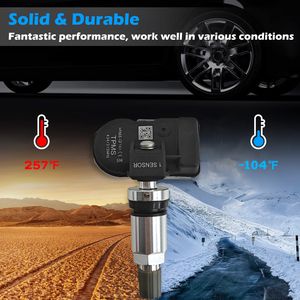Introduction to Oil Valve Sensors
Oil valve sensors play a crucial role in maintaining the efficiency and functionality of various machinery, particularly in automotive and industrial applications. These sensors are designed to monitor the flow and pressure of oil within a system, ensuring optimal performance while preventing potential failures. By providing real-time data, oil valve sensors help operators make informed decisions, leading to increased longevity and reliability of equipment.
Types of Oil Valve Sensors
Oil valve sensors come in various types, each serving specific functions tailored to different applications. Understanding these types is essential for selecting the right sensor for your needs:
- Pressure Sensors: Measure the oil pressure within the system to ensure it remains within optimal limits.
- Temperature Sensors: Monitor the temperature of the oil to prevent overheating and maintain proper viscosity.
- Flow Sensors: Track the rate of oil flow to identify potential blockages or leaks within the system.
- Level Sensors: Detect the oil level in reservoirs, helping prevent dry runs that could cause severe damage to machinery.
Function and Feature of Oil Valve Sensors
The primary function of oil valve sensors is to provide critical information that helps in the monitoring and management of oil systems. Here are some of the key features that make oil valve sensors invaluable:
- Real-time Monitoring: Offers instant feedback on oil conditions, ensuring prompt action can be taken to prevent issues.
- Durability: Built to withstand harsh conditions, these sensors are typically engineered from high-quality materials resistant to heat and oil exposure.
- Compatibility: Designed to work seamlessly with various types of engines and machinery, ensuring wide applicability in both automotive and industrial uses.
- Alerts and Notifications: Many sensors come equipped with advanced technology that provides alerts for abnormal conditions such as low oil pressure or high temperatures.
Applications of Oil Valve Sensors
Oil valve sensors are used in a multitude of scenarios, reinforcing their importance across various industries. Some of the notable applications include:
- Automotive Systems: Essential in modern vehicles for monitoring engine oil systems, enhancing performance, and extending engine life.
- Industrial Machinery: Utilized in manufacturing equipment to ensure that lubrication systems function efficiently, reducing wear and tear.
- Aerospace Engineering: Critical in aircraft engines to monitor oil systems under extreme conditions, ensuring safety and compliance with stringent regulations.
- Marine Applications: Used in ships and submarines to maintain oil levels and pressures, vital for long voyages and equipment reliability.
Advantages of Using Oil Valve Sensors
Implementing oil valve sensors in machinery comes with numerous advantages that contribute to enhanced operational efficiency. Some of the key benefits include:
- Increased Efficiency: By providing accurate monitoring, these sensors help maintain optimal oil flows, which improves engine performance.
- Cost Savings: Early detection of issues can prevent costly repairs or total equipment failure, ultimately saving companies money.
- Enhanced Safety: Continuous monitoring can significantly reduce the risk of accidents caused by oil leaks or pressure failures, ensuring a safer working environment.
- Extended Equipment Lifespan: By ensuring that oils are maintained at the correct level and temperature, these sensors contribute to a longer functional lifespan of machinery.




















































